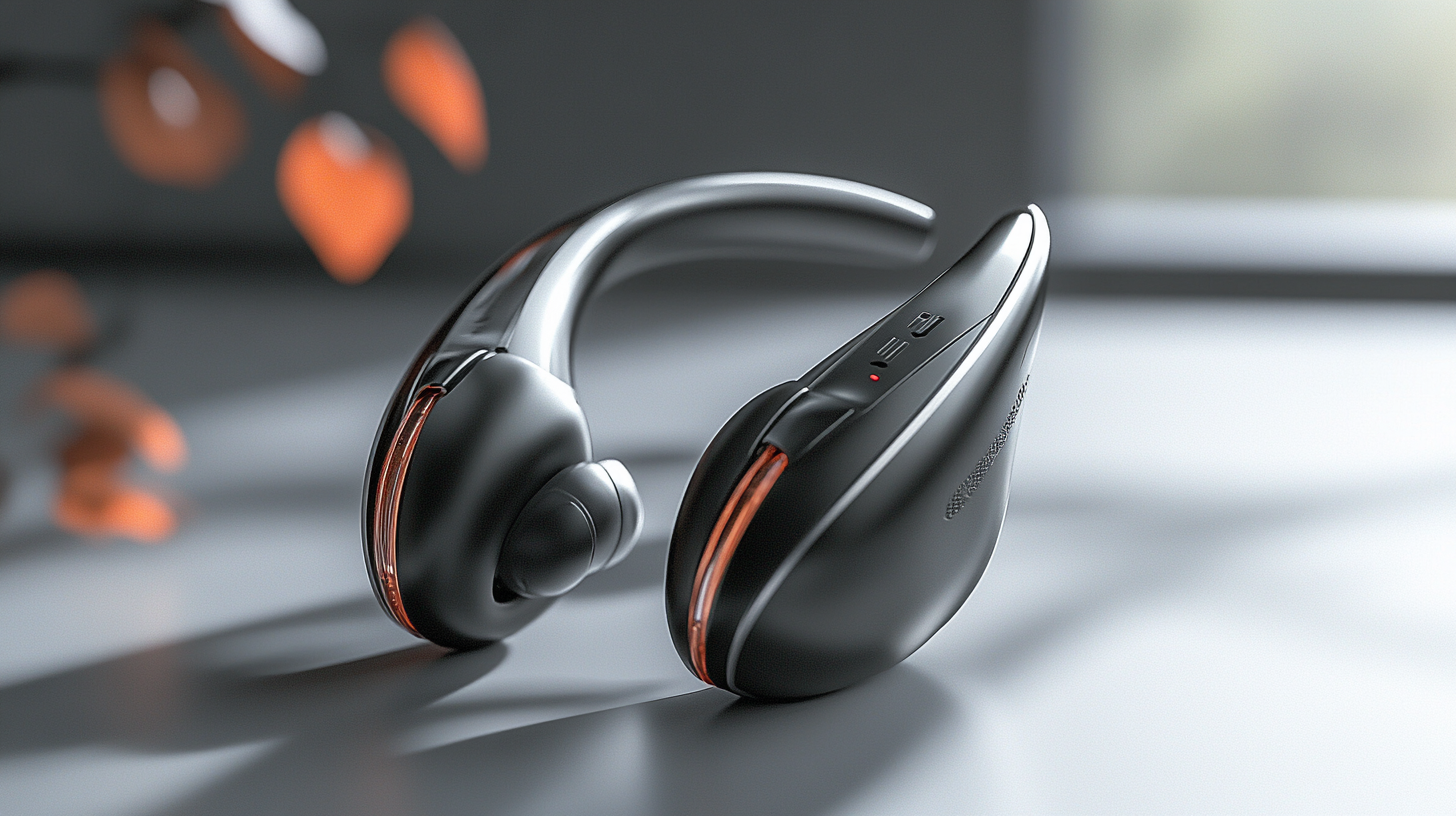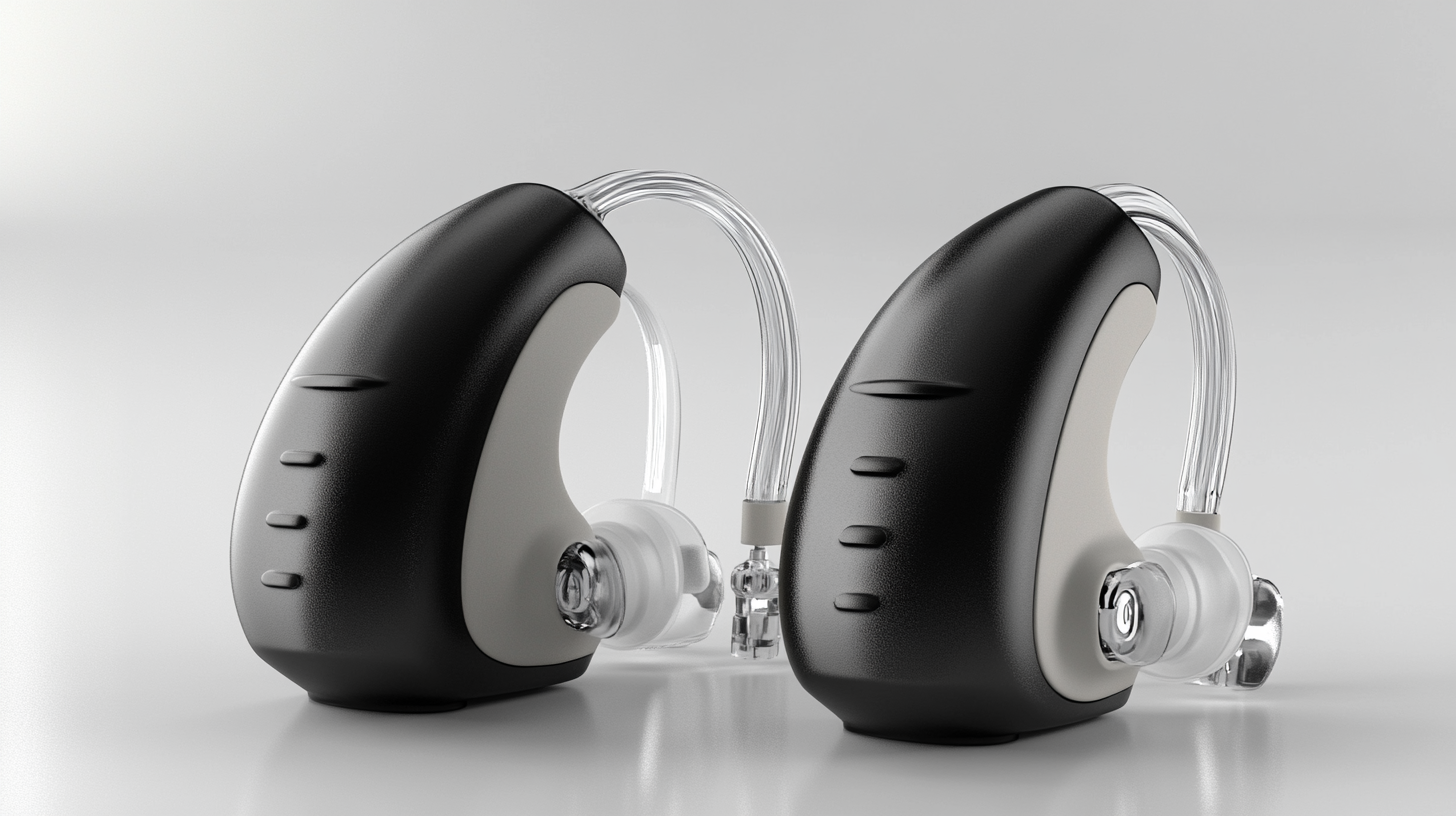In today's fast-paced world, the significance of sound in our daily lives cannot be overstated. Many individuals experience hearing loss that not only hinders their ability to communicate but also affects their overall quality of life. While traditional hearing aids have long been the go-to solution for auditory issues, an increasing number of people are exploring the option of Hearing Aid Surgery as a more permanent and effective remedy. This innovative approach offers a range of benefits that can significantly enhance auditory health and improve the overall experience of those living with hearing impairment.
Hearing Aid Surgery presents compelling advantages that extend beyond mere amplification. From restoring natural sound waves to preventing further deterioration of hearing ability, the surgical option is becoming an appealing alternative. As we delve deeper into this topic, we will explore five key reasons why individuals should consider Hearing Aid Surgery. These reasons not only highlight the effectiveness of the procedure but also underscore its potential to transform lives by fostering better communication, enhancing social interactions, and ultimately improving the quality of life for those grappling with hearing challenges.

Hearing aid surgery is becoming a viable option for many individuals seeking to enhance their auditory health. According to a report from the National Institute on Deafness and Other Communication Disorders, nearly 30 million adults in the U.S. experience hearing loss. Traditional hearing aids can benefit some, but they may not be adequate for everyone, particularly those with certain types of hearing impairments. Surgical interventions, such as cochlear implants, can offer a more permanent solution, providing improved sound clarity and greater overall satisfaction in daily life. One of the key benefits of hearing aid surgery is the ability to restore hearing to a level that allows individuals to engage in conversations and enjoy social interactions more fully. A study published in the Journal of the American Medical Association indicates that individuals with cochlear implants experience a significant improvement in their quality of life, reporting higher levels of social engagement and emotional well-being. With 71% of respondents noting improvement in personal relationships, it becomes evident that addressing hearing loss surgically can have profound impacts. Moreover, advancements in surgical techniques and technology have made these procedures safer and more effective than ever before. The World Health Organization estimates that untreated hearing loss costs the global economy $750 billion annually, largely due to lost productivity and increased healthcare costs. By considering hearing aid surgery, individuals not only improve their personal auditory health but also contribute to a more productive and economically stable society. Access to reliable surgical options can significantly reduce the long-term consequences of untreated hearing loss, making it a worthy consideration for those affected.

When considering enhancement in auditory health, it's important to understand the various types of hearing aid surgeries available. Recently, advances in this field have led to more effective solutions for those experiencing hearing loss. Among the most prominent options are cochlear implants, bone-anchored hearing aids, and other implantable devices that have shown promising results, especially in patients with conductive hearing loss.
Cochlear implants are often heralded for their transformative potential in restoring sound perception. They work by converting sound waves into electrical signals directly stimulating the auditory nerve, thus enabling users to perceive sounds more clearly and understand speech better. Similarly, bone-anchored hearing aids offer an alternative for individuals who may not benefit from traditional hearing aids due to their specific type of hearing loss. These devices use bone conduction to transmit sound vibrations directly to the inner ear, bypassing any obstructions in the outer or middle ear.
Moreover, with the recent FDA clearance for over-the-counter hearing aids, there's a growing conversation about the importance of early intervention and accessibility. This evolution in hearing technology not only highlights the necessity for surgery in some cases but also underscores the need for ongoing awareness around the various treatment options available. As research continues to develop—such as novel non-invasive techniques to address hearing loss—individuals must stay informed about what solutions might best suit their needs.

Hearing aid surgery presents a transformative opportunity for individuals struggling with hearing loss, significantly enhancing their quality of life. Unlike traditional hearing aids, which can sometimes feel cumbersome or ineffective, surgical options can provide more permanent solutions tailored to each individual's specific auditory needs. These procedures can address underlying issues, allowing patients to experience clearer sound transmission and improved auditory clarity, making daily interactions more enjoyable and less stressful.
Moreover, the psychological and emotional benefits of enhanced hearing cannot be overstated. Many individuals with hearing impairments experience feelings of isolation and frustration, which can lead to anxiety and depression. By undergoing hearing aid surgery, individuals often report a renewed sense of connection with their loved ones and a greater engagement in social activities. This newfound ability to participate fully in conversations and experiences fosters emotional well-being and a more positive outlook on life.
Additionally, improved auditory health can lead to better cognitive function. Research has shown that untreated hearing loss may contribute to cognitive decline. By investing in surgical intervention for hearing, individuals not only regain their auditory capabilities but also support their mental acuity, promoting a more vibrant, active lifestyle. The integration of enhanced hearing aids post-surgery helps maintain this improved auditory health, allowing patients to enjoy everything from environmental sounds to music and conversation with clarity.

Many people harbor misconceptions about hearing aid surgery, particularly concerning cochlear implants and their efficacy. One prevalent myth is that cochlear implants are a replacement for traditional hearing aids, discounting the nuanced benefits that surgical interventions can provide for specific individuals. Unlike simple amplification from hearing aids, cochlear implants can directly stimulate the auditory nerve, offering the potential for improved hearing capabilities, especially for those who have severe to profound hearing loss.
Addressing common concerns, some parents of deaf children have started to reject cochlear implants, fearing that these devices impose societal norms on their children's identity as Deaf individuals. This sentiment reflects a broader misunderstanding of the technology. Cochlear implants are not meant to erase Deaf culture or experiences, but rather provide an option for those who wish to explore the benefits of improved auditory access.
Additionally, it’s crucial to contemplate the health implications of untreated hearing loss, which can lead to cognitive decline and social isolation. Hearing aid surgery, specifically cochlear implants, has been shown to alleviate these issues, improving not only auditory function but overall quality of life. Understanding the intricacies of these technologies empowers individuals and families to make informed decisions about their auditory health.
Hearing aid surgery can be a transformative experience for individuals seeking improved auditory health. Understanding what to expect during the surgical process is crucial for ensuring peace of mind and a smoother journey toward enhanced hearing. The typical hearing aid surgery involves several key stages, starting with a comprehensive evaluation by an audiologist who will assess the specific hearing loss needs of the patient. This assessment helps in tailoring the surgical approach to individual circumstances, allowing for a personalized treatment plan.
On the day of the surgery, patients can anticipate a straightforward process. The procedure is usually performed under local anesthesia, which means patients remain awake but relaxed, without feeling pain. Surgeons will make a small incision to place the hearing device directly within the ear or behind it. This technique has several benefits, including minimal recovery time and a natural fit that enhances comfort. Post-surgery, patients will receive instructions for care and follow-up appointments that are vital for ensuring the device is functioning properly and that the healing process is on track.
The initial adjustment period after hearing aid surgery can vary from patient to patient. It is common to experience a range of sounds that may feel overwhelming at first. However, with time and guidance from healthcare providers, individuals will gradually acclimate to their enhanced auditory environment. Embracing this period with patience and openness can lead to a fulfilling auditory experience, opening up a new world of sounds that significantly enrich daily life.
*The content on this website is for general informational purposes only and should not be taken as medical advice. Please contact your physician or therapist to learn what therapy solution is suitable for your specific needs. Not all products, features, or indications shown are approved in all countries.